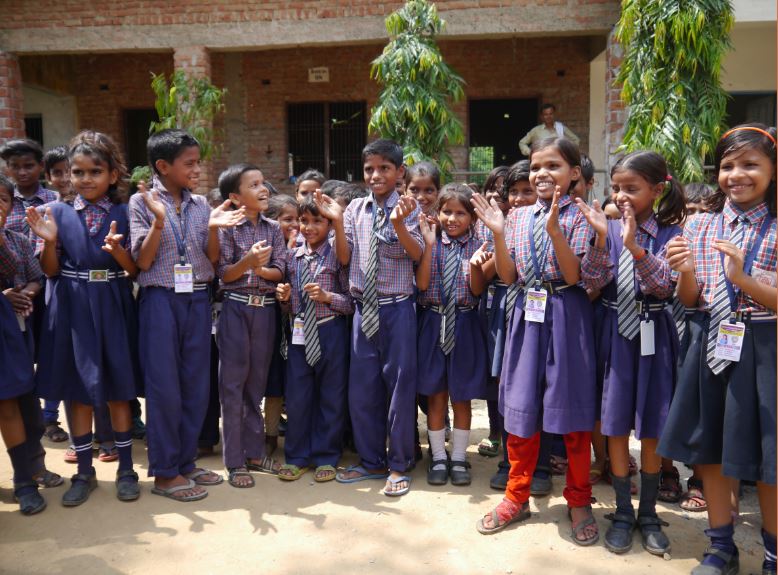The Child Trust is a philanthropic organization working for more than 15 years on the issues of protection and promotion of child rights issues.
DRIVING PRINCIPLES
From our experiences and expertise on working with children, specifically protection issues, we firmly believe that multi-sectoral and multidimensional approach is warranted to protect and promote child rights with focus on remedy and preventive actions:
Children should be empowered with knowledge, skills and rights perspective as well as attitude with direct interventions so that they could gain confidence to deal with issues, which are affecting them and enjoy their childhood without any abuse or violations. They also evolve in to better citizens in future, contributing to the nation building.
Apart from awareness building of parents and communities, it is also equally important to address economic, social and cultural rights of communities so that they can be empowered. Right to employment, right to living wages, access to resources, access to food security are some of the critical interventions and facilitating these with the support of State and Non-State actors are aimed at. Vocational skill building, facilitating start-ups, fair trade community based initiatives, local economic avocations, handicrafts developments are some of the interventions can be promoted.

Addressing root causes that push and pull children into vulnerable situations by working with the Government for relevant policies, programmes and plans with budget allocations and supporting the policy reforms proactively and responding to current policy lacunae and gaps for advocating appropriate amendments are the focus.
Governance and Child Rights
Focusing on SDGs to attract the attention of national and international governments for just allocations and focus on child rights programmes which would really address issues with bottom up approach and community based initiatives and linking local to global issues. SGD Goal 1 reducing poverty, goal 2 Hunger and food security, goal 3 on Good health and wellbeing, goal 4 on Quality education, Goal 6 on water and sanitation, Goal 16 on Peace, Justice and Strong Institutions are relevant goals to ensure child rights and child wellbeing with accomplishing the best interests of children and non-discrimination.
Fair and Just Trade -Role of Non-State Actors in realizing child rights
Fair and just trade- increasingly the current trade which has been focused more on profiteering and mindboggling exploitation of natural resources due to the current pattern of manufacturing and extracting natural resources irrationally. This indeed is violating the rights of communities and naturally the first and foremost affected among them would be children and women. Therefore, TCT is aligning with likeminded groups to promote ethically based trade practices which would really empowering backward linkages with rural as well as local economy, provide spaces for benefit sharing, empowering local communities’ arts and crafts, providing alternate paradigm to avert commodifying and commercializing local resources, and recognize / respect local talent, traditional best practices and native traditional wisdom of communities. Need to factor the States’ existing obligations to respect, protect and fulfil human rights and fundamental freedoms. And the role of business enterprises as specialized organs of society performing specialized functions, required to comply with all applicable laws and to respect child/ human rights.
Hidden Children Groups- street and migrant children
TCT is concerned about the growing numbers of children in need of special protection due to the current economic policies pursued by the State and also tolerant nature of a larger civil society, they should not accept current poor status of child rights. Our Indian economic and social situation has changed in recent decades and these reforms have caused new vulnerabilities and inequalities for children. As a result, there have been increasing child protection risks, including child labour, child slavery, neglect of education-more drop outs, burgeoning number of vulnerable street children and migrant children who are subject to all forms of sexual exploitation.
- Restoring the lost childhood right, right to life, development, love and care
- Rebuilding the trust of children towards the larger society and multiple stakeholders, – to respect, protect rights of the children recognition as a human being with human rights, protection against exploitation, trafficking, right to free, compulsory, quality and equitable education with vocational training
- Reaffirming the best interests of children, policies that effect children directly or indirectly eg development policies, livelihood and right to food of families, communities, and distress migration
- Recognizing every child’s individual capacities and rebuild on that providing— opportunities to grow and development, education, participation,
- Socially and economically empowering the local communities to take ownership and charge for the current status of children and contribute to mitigate the situation
- Building linkages with larger ESC rights and child rights as they are interdependent, interrelated, as right to feed all children with dignity and culturally appropriate food- quality nutritious as well as adequate quantity food- is the basic for ensuring survival of children and develop a happy as well as healthy children and realization of development rights-including education and skill enhancement.
